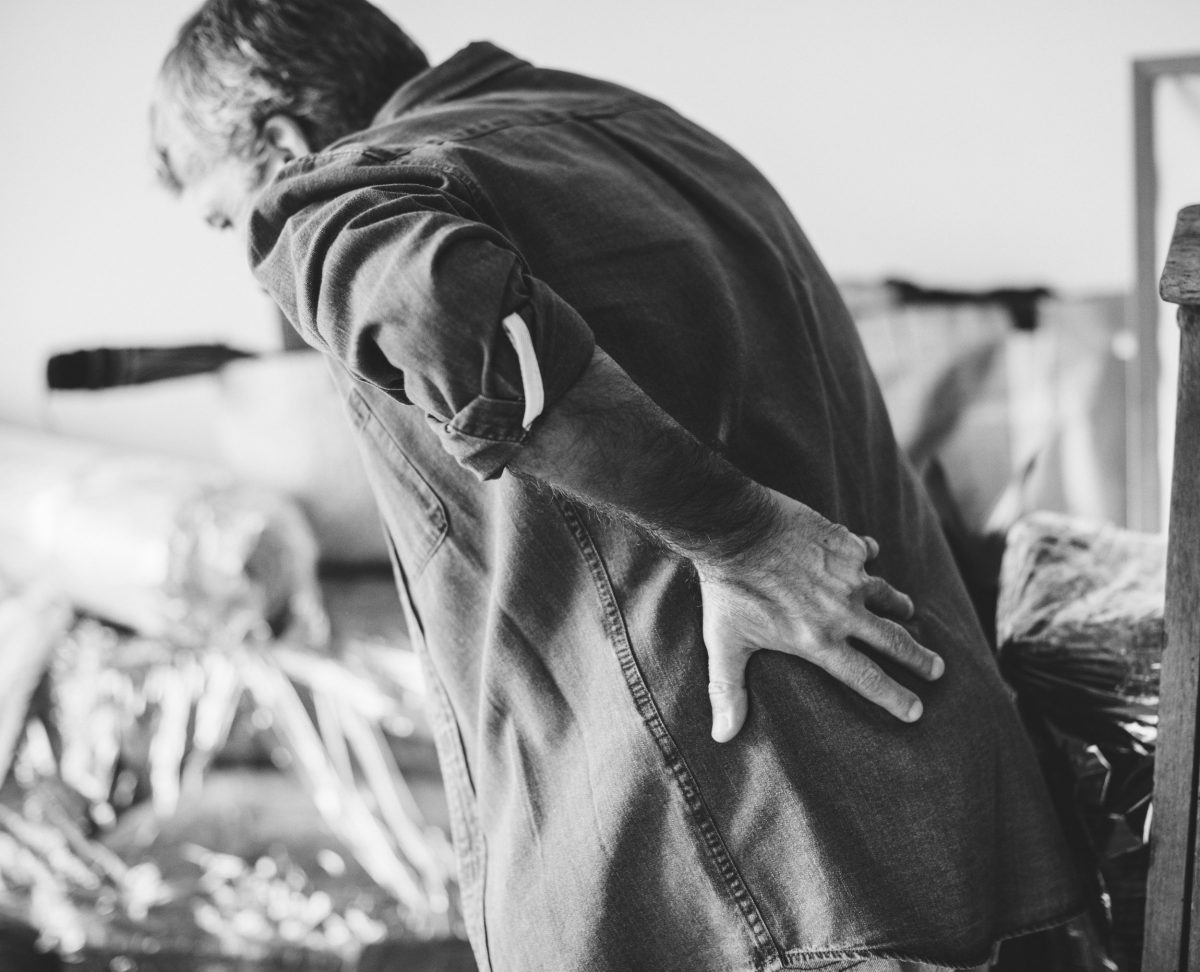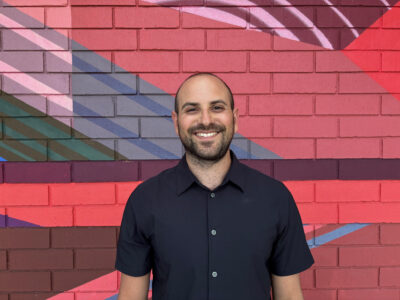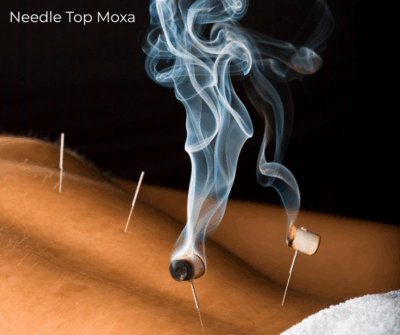Q and A with Cassandra Krug, L.Ac, Dipl. OM

At this time of year, shoveling snow, skiing, and snowboarding are some of the most common reasons we treat back pain. Whether it is a muscle sprain or strain, or something more serious such as a disc bulge or herniation, acupuncture is a great way to systemically decrease inflammation, improve circulation, and relax tight muscles. According to Chinese medicine theory, “where there is pain, there is stagnation” (think a kink in a hose). Our job as acupuncturists is to unblock those pathways and create movement so you may be able to move with ease again. With spring in the air you might be hoping to get outside and garden, rock climb, or go for a bike ride; all difficult tasks when you are in pain. Now is the perfect time to treat yourself to acupuncture! Keep reading for most commonly asked questions, what to expect from your treatment, and supporting research.
My pain is in my back, why are you putting the needle there?
Many are surprised to learn that we do not have place needles in your back to treat your back pain. The tiny needles might be inserted into your shoulders, arms, legs, hands, or feet. Selecting points away from the area of pain is called distal needling acupuncture or the Balance Method. Acupuncture points are along meridians, which are pathways for your qi or life force/energy to travel. Your acupuncturist can balance the “stuck” meridian by needling a balancing meridian. If the needles are placed in the correct areas, a decrease in pain should be instantaneous.
How often do I need to come to acupuncture?
While it is true that your pain will often decrease during treatment, acupuncture treatments build on one another so the more frequently you get treatments and the closer together your appointments, the faster your pain will decrease and the longer it will stay away. As your pain starts to get better, the frequency of treatments will also decrease. Your acupuncturist will recommend how often you should get treatment based on what is causing the pain, severity of pain, and duration of pain.
Will acupuncture fix my herniated disc, stenosis, or structural changes causing my pain?
Simply put, no. Acupuncture is not going to reverse the structural changes that have already taken place. What it is going to do is decrease inflammation in that area and provide adequate blood flow for healing, taking pressure off the nerves and giving you relief from numbness, tingling, burning, or pain associated with the structural changes. It will also help stop the progression of arthritic changes. It is realistic to expect long term pain relief from acupuncture, but also expect to get regular acupuncture treatments or maintenance treatments long term when dealing with chronic pain due to structural changes. We listen to your goals, “I want to hike in the mountains again”, “I want to stand at my sink and wash the dishes,” “I want to pick my grandkids up”, “I want to ski double black diamonds for the next ten years.” Based on your goals, we can make realistic recommendations.




I strained a muscle in my back and I am having spasms, can acupuncture help fix it?
Yes! Acupuncture is a wonderful way to get your back out of spasms and help your body to recover from acute injury. Acupuncture will help to relax the muscles in spasm, decrease the inflammation, and help blood flow to the area of injury providing you with pain relief. Acute muscular pain can generally be addressed in one to three acupuncture treatments, depending on severity.
Is acupuncture for back pain covered by insurance?
Fortunately, as acupuncture is becoming more widely researched, insurance companies are starting to cover it more frequently. Many insurance companies offer in and out of network coverage options, especially for pain related conditions. Check with your insurance company to find out if you have benefits on your individual plan. At our clinic, we provide superbills for those who have an out-of-network acupuncture benefits and you can submit for reimbursement.
Are there any research studies on acupuncture for back pain?
Acupuncture has been widely researched, especially in regards to its effect on pain relief. A recent study showed acupuncture can give greater and faster pain relief with fewer side effects than intravenous morphine when treating acute pain in the emergency room. (1). Multiple other studies have shown acupuncture to significantly decrease chronic low back pain when receiving acupuncture in comparison with traditional treatment or no treatment (2), (3), (4). Other benefits of acupuncture include increased range of motion with spinal flexion (5), and relief of numbness, tingling, and pain due to nerve impingement (6).
Acupuncture is a wonderful way to help you get back into shape so that you are able to participate in the spring and summer activities that bring you joy. Gardening, mowing the lawn, hikes, bike rides, summer strolls, and dog walks are only a short list of activities that pain can stop us from doing. We are here to help you recover from acute injuries or help you manage long term pain so you are able to enjoy life to the fullest.
Works Cited
-
Baccouche H., Boubaker H., Beltaeif K., et al. Acupuncture vs intravenous morphine in the management of acute pain in the emergency department. (2016) American Journal of Emergency Medicine,34 (11) , pp. 2112-2116. https://www.ncbi.nlm.nih.gov/pubmed/27475042
-
Brinkhaus B, Witt CM, Jena S, et al. Acupuncture in patients with chronic low back pain: a randomized controlled trial. Arch Intern Med. 2006 Feb 27;166(4):450–457. https://www.ncbi.nlm.nih.gov/pubmed/17893311
-
Haake M, Muller HH, Schade-Brittinger C, et al. German Acupuncture Trials (GERAC) for chronic low back pain: randomized, multicenter, blinded, parallel-group trial with 3 groups. Arch Intern Med. 2007 Sep 24;167(17):1892–1898. https://www.ncbi.nlm.nih.gov/pubmed/16505266
-
Molsberger AF, Mau J, Pawelec DB, Winkler J. Does acupuncture improve the orthopedic management of chronic low back pain–a randomized, blinded, controlled trial with 3 months follow up. Pain. 2002 Oct;99(3):579–587. https://www.ncbi.nlm.nih.gov/pubmed/12406534
-
Grant DJ, Bishop-Miller J, Winchester DM, Anderson M, Faulkner S. A randomized comparative trial of acupuncture versus transcutaneous electrical nerve stimulation for chronic back pain in the elderly. Pain. 1999 Jul;82(1):9–13. https://www.ncbi.nlm.nih.gov/pubmed/10422654
-
Johansson KM, Adolfsson LE, Foldevi MO. Effects of acupuncture versus ultrasound in patients with impingement syndrome: randomized clinical trial. Phys Ther. 2005 Jun;85(6):490–501. https://www.ncbi.nlm.nih.gov/pubmed/15921471


